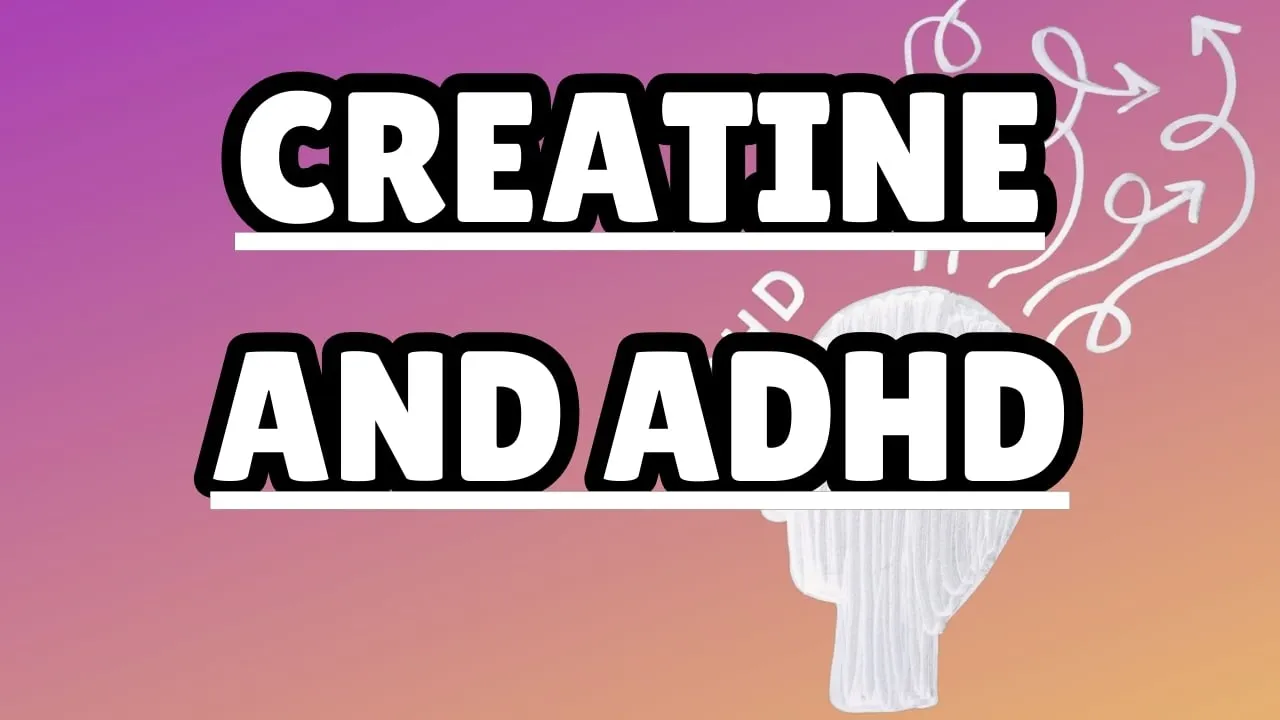Creatine and ADHD: What You Need to Know
Creatine and ADHD: Exploring the Link Between Brain Health and Supplementation
Creatine is a compound known for its role in muscle energy, but its potential effects on brain health are gaining attention.
This article explores the possible connection between creatine supplementation and ADHD (Attention Deficit Hyperactivity Disorder).
If you or someone you know has ADHD, understanding how creatine might help manage symptoms could be valuable.
Read on to discover the science, potential benefits, and safety of using creatine for ADHD.
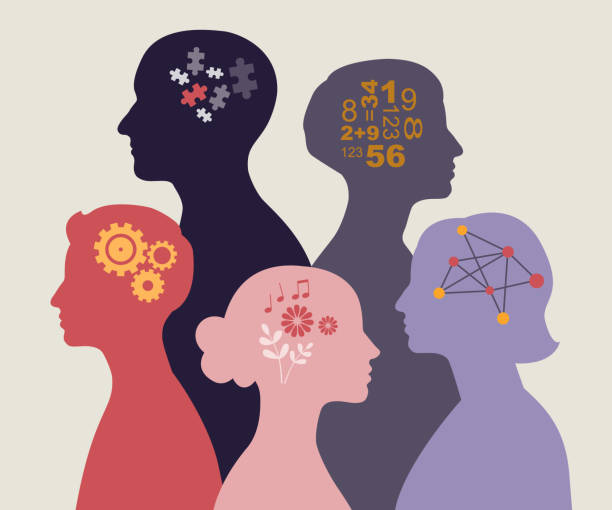
Outline of Topics:
- What Is Creatine?
- What Is ADHD?
- The Science Behind Creatine and ADHD
- Does Creatine Help ADHD Symptoms?
- How Does Creatine Affect Brain Function?
- Using Creatine for ADHD: Is It Safe?
- Potential Benefits of Creatine for ADHD Management
- What Research Says About Creatine and ADHD
- How to Use Creatine for ADHD
- Conclusion: Can Creatine Help People with ADHD?

1. What Is Creatine?
Creatine is a compound found in the body, mainly in muscles and the brain. It plays a vital role in energy metabolism, helping cells produce ATP (adenosine triphosphate). ATP is the primary energy source for cellular activities, including brain function.
Creatine is obtained through diet (meat and fish) and can also be synthesized by the body.
Supplements like creatine monohydrate gummies are popular for enhancing physical performance, but they may also benefit brain health.
2. What Is ADHD?
ADHD, or Attention Deficit Hyperactivity Disorder, is a neurodevelopmental condition.
Symptoms include inattention, hyperactivity, and impulsivity. Individuals with ADHD often experience difficulties in daily tasks, learning, and social interactions.
ADHD is thought to involve impairments in brain energy metabolism and neurotransmitter regulation.
Understanding how creatine interacts with the brain may offer insights into managing ADHD symptoms.
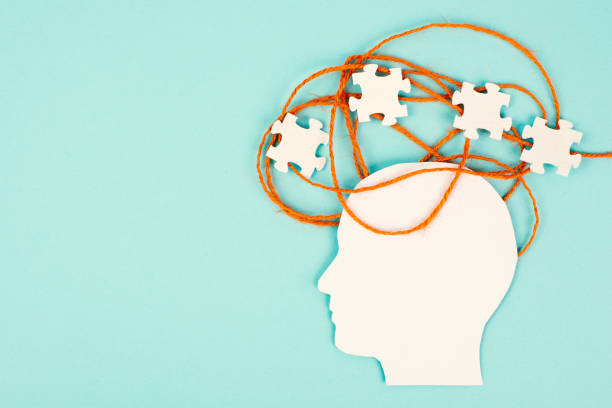
3. The Science Behind Creatine and ADHD
Research suggests that creatine may influence brain energy metabolism. Brain creatine levels are crucial for maintaining cognitive function and focus.
Emerging research suggests that creatine supplementation could support brain energy metabolism, which might benefit individuals with ADHD.
For a deeper dive into how creatine functions, check out How Does Creatine Work for detailed insights.

4. Does Creatine Help ADHD Symptoms?
Creatine may help manage symptoms of ADHD by supporting brain energy metabolism. Research suggests that creatine could help improve focus and reduce fatigue, which are common challenges for people with ADHD.
While studies are ongoing, initial findings suggest that creatine may benefit individuals with ADHD by addressing energy deficits in the brain.
However, more clinical trials are needed to confirm its efficacy.
5. How Does Creatine Affect Brain Function?
Creatine supports brain function by increasing brain creatine levels. This enhances ATP production, ensuring that brain cells have the energy they need to function properly.
Brain energy metabolism is crucial for cognitive tasks like focus, memory, and problem-solving.
Creatine supplementation may help stabilize energy levels, which could improve brain function in individuals with ADHD.
For more on creatine's benefits for recovery, read Creatine Recovery.
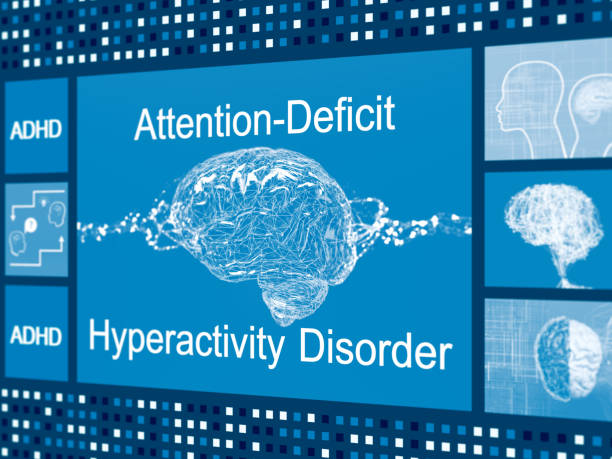
6. Using Creatine for ADHD: Is It Safe?
Using creatine for ADHD is generally considered safe for most people when taken in recommended doses.
Creatine supplementation has been shown to have minimal side effects in healthy individuals.
However, consulting a healthcare professional before starting creatine supplementation is advisable, especially for individuals with ADHD or other health conditions.
Learn about potential risks and myths in Creatine Supplementation Side Effects.
7. Potential Benefits of Creatine for ADHD Management
- Improved Focus: Creatine may help improve focus by stabilizing brain energy metabolism.
- Reduced Fatigue: Creatine supplementation could help reduce mental fatigue, supporting sustained attention.
- Enhanced Cognitive Function: Studies have suggested that creatine may benefit cognitive performance, which is often impaired in individuals with ADHD.
The potential role of creatine in ADHD management is promising, but more research is needed to confirm its effects.
8. What Research Says About Creatine and ADHD
Studies have suggested that creatine supplementation may influence brain function in positive ways.
Research suggests that creatine may help support brain health and energy metabolism, both of which are critical for managing ADHD symptoms.
One study reported that creatine supplementation improved brain function in individuals with cognitive impairments. While this study did not focus on ADHD specifically, it highlights the potential benefits of creatine for brain health.
For a comparison of creatine types, see Creatine HCL vs. Monohydrate.

9. How to Use Creatine for ADHD
If you’re considering using creatine for ADHD, follow these steps:
- Choose a High-Quality Supplement: Opt for creatine monohydrate, as it is the most researched and effective form.
- Start with a Low Dose: Begin with a low dose, such as 3-5 grams per day, and monitor effects.
- Consult a Healthcare Professional: Speak with a doctor to ensure creatine supplementation is appropriate for your needs.
- Monitor Progress: Track any changes in ADHD symptoms and adjust the dosage if needed.
10. Conclusion: Can Creatine Help People with ADHD?
Creatine may support brain health and help manage ADHD symptoms by stabilizing brain energy metabolism.
While research is still emerging, the potential benefits of creatine for ADHD management are promising.
Key Takeaways:
- Creatine supports brain function by enhancing energy metabolism.
- ADHD symptoms may be linked to impaired brain energy metabolism.
- Creatine supplementation could help improve focus, reduce fatigue, and enhance cognitive function.
- Consult a healthcare professional before using creatine for ADHD.
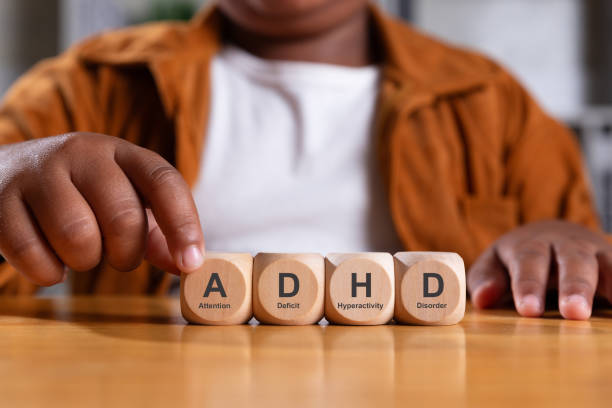
For more on the best forms of creatine, check out A Guide to Supplement Forms or Creatine Powder Vs. Pills.
By understanding the science and potential benefits of creatine, individuals with ADHD can explore this supplement as part of their management strategy.
FAQ Section
What is the Effect of Creatine?
Creatine has been shown to improve physical performance, enhance cognitive function, and support brain energy metabolism.
Studies suggest creatine may provide relief for individuals with conditions, including ADHD, by stabilizing energy levels in the brain.
Is Using Creatine for ADHD Safe?
Research on using creatine for ADHD indicates that it is generally safe when taken in recommended doses.
Thirteen treatment-naïve ADHD children and 10 healthy youth showed no adverse effects when supplementing with creatine.
However, it is crucial to consult a healthcare professional to ensure the safety of creatine supplementation for ADHD treatment.
What is Creatine Supplementation?
Creatine supplementation involves adding creatine to your diet, typically in the form of creatine monohydrate.
It is widely used to enhance athletic performance and may also improve brain creatine content, offering potential benefits for ADHD and cognitive function.
What is Brain Creatine?
Brain creatine refers to the creatine content within the brain that supports cognitive tasks and energy metabolism.
Brain creatine levels rely on exogenous creatine intake through diet or supplements, as defects in creatine biosynthesis or transport can lead to deficiencies.
What is the Effect of Creatine Supplementation?
The effect of creatine supplementation includes improved brain energy metabolism, cognitive function, and physical performance.
Studies indicate that following creatine supplementation, brain creatine content increases, which may help manage ADHD symptoms.
What Are Creatine Levels?
Creatine levels refer to the concentration of creatine within the body, including muscles and the brain.
Total brain creatine content relies on both endogenous biosynthesis and exogenous creatine intake, such as through creatine supplementation.
What Are Brain Creatine Levels?
Brain creatine levels represent the amount of creatine stored in the brain. Low levels of creatine may result from deficiencies in biosynthesis or transport, potentially affecting cognitive function.
Supplementing creatine is thought to improve brain creatine levels and aid individuals with ADHD or other conditions.
What is the Effect of Creatine Supplementation on Brain Creatine?
Creatine supplementation on brain creatine has been shown to increase brain creatine content, improving cognitive performance and energy metabolism.
For ADHD patients, creatine could potentially enhance focus and reduce fatigue, although more studies are needed to confirm its efficacy.
Why Should You Supplement Creatine?
Supplementing creatine helps maintain adequate creatine levels, supporting both physical and mental performance.
Adding creatine to your routine may benefit individuals with creatine deficiency, ADHD, or those engaging in resistance training and cognitive-demanding tasks.
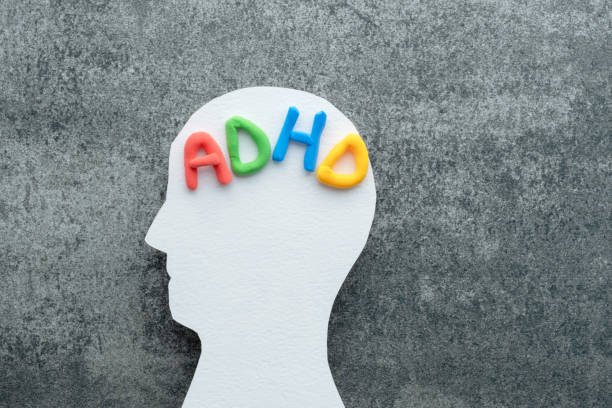
References
- Chang, Cheih-Chung, et al. "Effect of Creatine Supplementation on Cognitive Function of Healthy Individuals: A Systematic Review and Meta-Analysis of Randomized Controlled Trials." Nutrients, vol. 13, no. 4, 2021, p. 1239. PMC.
- Allen, Perry J. "Creatine Metabolism and Psychiatric Disorders: Does Creatine Supplementation Have Therapeutic Value?" Neuroscience and Biobehavioral Reviews, vol. 36, no. 5, 2012, pp. 1442–1462. PMC.
- Demontis, Ditte, et al. "Discovery of the First Genome-Wide Significant Risk Loci for Attention Deficit/Hyperactivity Disorder." Nature Genetics, vol. 51, no. 1, 2018, pp. 63–75. Nature.
For More Training Advice + Diet and Lifestyle visit us Combat Creatine
PS: Make sure you check out the rest of our Creatine Guides:
Creatine
When to Take Creatine: Pre vs Post Workout
Is Creatine Safe for Teen Athletes
Can You Take Creatine for Weight LossShould I Take Creatine on Rest Days or Off Days
Can You Take Creatine Before Bed
Can You Take Creatine Without Working Out?Can You Mix Collagen and Creatine in One Drink?What Happens When You Stop Taking Creatine
The Impact of Alcohol and Creatine

